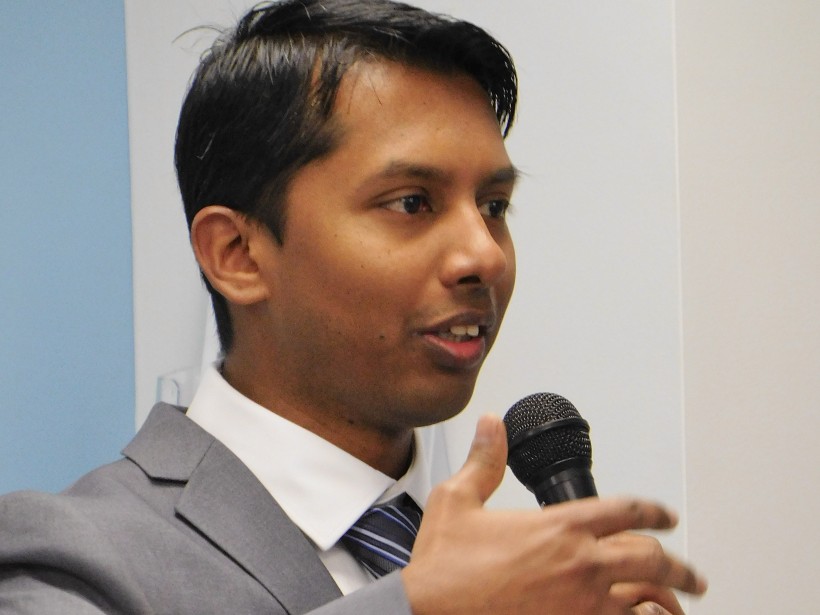Halifax’s Zen Electric has raised $1.25 million from Nigerian utility company North South Power as it eyes commercialization of its technology in South Asia.
Zen was originally founded by Ravindra Kempaiah to make electric bicycles under the name Zen Electric Bikes. More recently, the company has pivoted to focus on battery systems.
The North South deal is part of a larger funding raise that also includes a $375,000 loan from the Atlantic Canada Opportunities Agency and about a $1 million equity investment from an undisclosed backer, which Kempaiah expects to close in the coming weeks.
He said during a press conference Wednesday that Zen was inspired by his experiences growing up in India and seeing that buyers in that region are leery of electric vehicles. Specifically, they tend to have concerns about battery longevity, both in terms of how long a charge lasts and the lifespan of the battery itself — two issues Zen's technology aims to address.
"Our focus market is countries with hot climates where electric two-wheelers are in high demand,” said Kempaiah in an interview. “Basically, we will build only the battery packs. And we will be working closely with the original equipment manufacturers to adapt our bikes to their vehicle architecture.”
His team estimates that their batteries will be able to last about four times longer than the roughly three-year lifespan of competing products.
The technological breakthroughs that allow for that extended lifespan are the result of work by researcher Jeff Dahn and his team at Dalhousie University, which previously gave rise to Novonix Battery Testing Solutions, now owned by Australian cleantech unicorn Novonix Ltd.
Kempaiah said South Asia will be Zen’s beachhead market, partly because of his familiarity with the consumer landscape and partly because early signs point to high demand in that part of the world. Later, Zen will also sell its products in Africa.
He described the North South investment as “highly strategic,” thanks to that company’s infrastructure, which is heavily focused on renewable energy.
“North South Power owns the grid,” said Kempaiah. “They operate the power generation plants. So we will be able to deploy our technology quickly in African markets if needed, and they would be able to leverage our battery technology and use it for their solar farms or some of their other products.”
Senior North South executives said they invested in Zen because of the potential of its technology, their confidence in Kempaiah specifically and because they want to diversify their business interests into less risky parts of the world, such as Canada.
"I met Ravi through Jeff (Dahn) about two years ago,” said Chris Burns, who now heads up Novonix Battery Testing Solutions and was previously a PhD student in Dahn’s lab.
“This focus on markets that were clearly being underserved … with basically cells and battery chemistries that were coming out of China simply to make ends meet — there was a huge opportunity to actually deploy the type of technologies I worked on 10 years ago and are still being worked on today.”
Kempaiah’s six-person team plans to build its prototypes in Halifax, before partnering with a manufacturer in India to start mass production around the fourth quarter of this year. He said he has already received letters of intent from several publicly listed companies interested in purchasing tens of thousands of batteries.
He is looking to hire two more engineers and two business development specialists in Halifax, and later this year, he expects to onboard about five staff in India.










